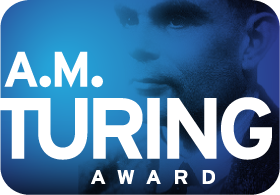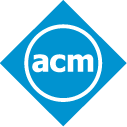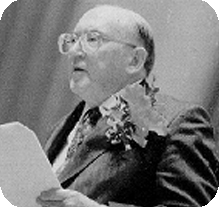
A.M. TURING AWARD WINNERS BY...
Maurice V. Wilkes

United Kingdom – 1967
Short Annotated Bibliography
Wilkes published over 180 papers and 8 books. These included technical publications as well as more accessible surveys and accounts of computing aimed at either the non-specialist or, in some cases, the lay reader.
- Wilkes, Maurice, David J. Wheeler and Stanley Gill, The Preparation of Programs for an Electronic Digital Computer, Addison Wesley, Reading, Mass., 1951. Reprinted as Charles Babbage Institute Reprint Series for the History of Computing, Vol. 1, Tomash Publishers, Los Angeles, 1982. This classic work was the first textbook on programming. It influenced the early development of programming all over the world.
- Wilkes, Maurice, “The Best Way to Design an Automatic Computing Machine,” Report of Manchester University Computer Inaugural Conference, July 1951. Reprinted in M. Campbell-Kelly and M. R. Williams, The Early British Computer Conferences, MIT Press and Tomash Publishers, Cambridge MA and Los Angeles, 1989. This paper is Wilkes’ first exposition of microprogramming. It grew out of an attempt to reduce the amount of “random logic” in computer design.
- Wilkes, Maurice, Automatic Digital Computers, Methuen, London, 1956. An accessible account of computing written for the general reader. It puts the EDSAC and other early computer developments into historical context
- Wilkes, Maurice, "Babbage as a Computer Pioneer," Report of Babbage Memorial Meeting, British Computer Society, London, 1971. Reprinted in Historia Mathematica, Vol. 4, pp. 415-439, 1971. Wilkes was a noted expert on the 19th century computer pioneer Charles Babbage. This is the text of an important lecture given to the British Computer Society (a sister organization of the ACM) in London in 1971.
- Wilkes, Maurice. 1985. Memoirs of a Computer Pioneer, MIT Press, Cambridge, Mass. This is the most comprehensive personal memoir by any of the early computer pioneers. It focuses particularly on Wilkes’ early career and on the development of the EDSAC.




























 THE A.M. TURING AWARD
THE A.M. TURING AWARD